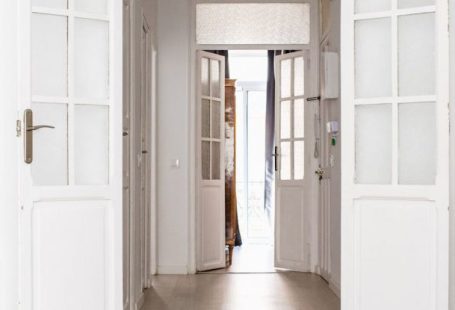Composting is a simple and eco-friendly way to reduce waste and create nutrient-rich soil for your plants. By turning kitchen scraps and yard waste into compost, you can contribute to a more sustainable lifestyle while also improving the health of your garden. If you’re new to composting and unsure where to start, this guide will walk you through the basics of how to start composting at home.
Benefits of Composting
Composting is a natural process that breaks down organic matter into a rich soil amendment known as compost. Not only does composting help reduce the amount of waste that ends up in landfills, but it also provides numerous benefits for your garden. Compost improves soil structure, helps retain moisture, and adds essential nutrients that promote plant growth. By composting at home, you can create a closed-loop system where your waste becomes a valuable resource for your garden.
Choosing a Compost Bin
The first step in starting your composting journey is to choose a compost bin that suits your needs. There are various types of compost bins available, ranging from simple DIY setups to more advanced tumblers and bins with aeration systems. Consider the amount of space you have available, the volume of waste you generate, and your budget when selecting a compost bin. Remember, the key to successful composting is to have a balance of green (nitrogen-rich) and brown (carbon-rich) materials in your compost bin.
Green vs. Brown Materials
To create high-quality compost, you need to provide a mix of green and brown materials. Green materials, such as fruit and vegetable scraps, coffee grounds, and grass clippings, are rich in nitrogen and help activate the composting process. Brown materials, such as dried leaves, straw, and shredded paper, provide carbon and help maintain the right balance in your compost bin. Aim for a ratio of roughly 2 parts brown materials to 1 part green materials to ensure that your compost pile decomposes efficiently.
Building Your Compost Pile
Once you have your compost bin and a good mix of green and brown materials, it’s time to start building your compost pile. Begin by adding a layer of brown materials to the bottom of your bin to create a base. Then, alternate layers of green and brown materials, making sure to add some water to keep the pile moist. Turning your compost pile every few weeks will help aerate the materials and speed up the decomposition process. With time and the right conditions, you’ll have a nutrient-rich compost ready to use in your garden.
Troubleshooting Common Issues
Composting is a straightforward process, but it’s common to encounter some challenges along the way. If your compost pile smells bad, it may be too wet or have an imbalance of green and brown materials. Adding more brown materials and turning the pile can help alleviate odor issues. If your compost isn’t breaking down as quickly as you’d like, it may need more aeration or a boost of nitrogen-rich materials. By monitoring your compost pile and making adjustments as needed, you can troubleshoot common issues and ensure that your composting efforts are successful.
Using Your Finished Compost
Once your compost has fully decomposed and turned into a dark, crumbly material, it’s ready to use in your garden. Spread the compost around your plants as a mulch or mix it into the soil to improve its fertility. Compost can also be used to make compost tea, a nutrient-rich liquid fertilizer that can be sprayed on plants to promote healthy growth. By using your finished compost in the garden, you’ll close the loop on your composting efforts and reap the benefits of your sustainable practices.
Embracing Sustainable Living
Composting at home is a simple yet impactful way to reduce waste, enrich your garden, and contribute to a more sustainable lifestyle. By following these steps and tips on how to start composting at home, you can enjoy the satisfaction of turning your organic waste into a valuable resource for your plants. Whether you’re a seasoned gardener or a beginner looking to make a positive change, composting is a rewarding practice that benefits both the environment and your garden. Start composting today and take a step towards a greener, more sustainable future.





